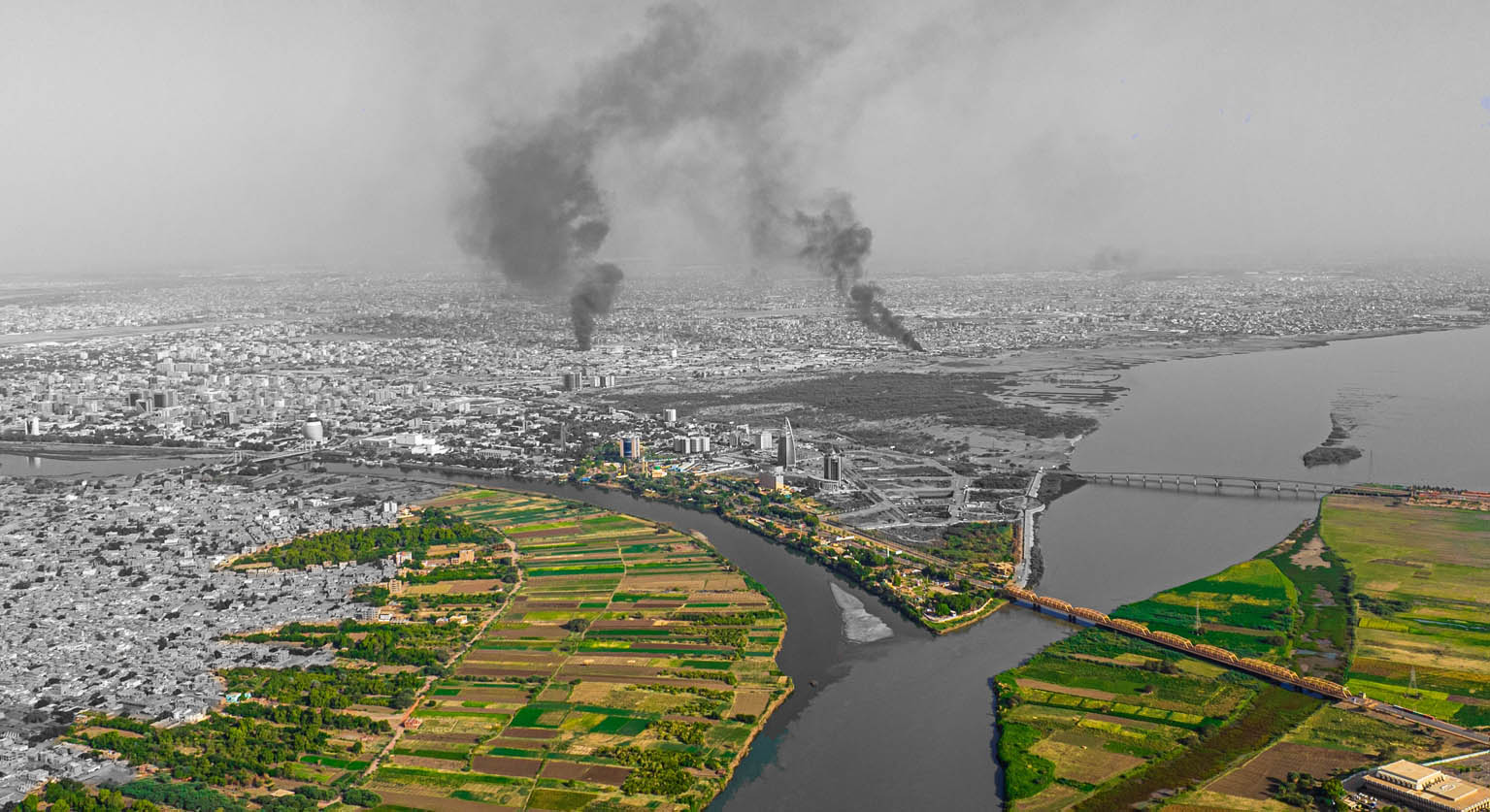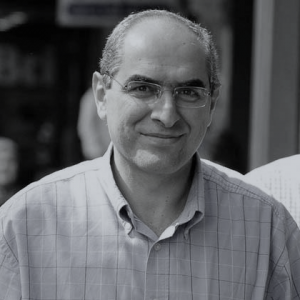
When climate disasters overthrow social and development gains - Habib Maalouf

When climate disasters overthrow social and development gains - Habib Maalouf
Climate change has imposed itself on societies and governments in the form of moving and worsening climate disasters, from which no inhabited or uninhabited spot on the face of the earth will not be spared. It transcends the borders of nations, societies, and social classes. Its environmental, human, and economic costs will overthrow all the development gains known to humanity. Its effects are devastating in all sectors, especially health, not only because of the increase in deaths resulting from the increase in global temperature and what is called "heat stress" or death from floods and the increase in the strength of hurricanes but also because of the devastating effects on life through the increased pollution of everything, especially air, which is considered the primary silent killer on the global level. Numerous international studies and reports have shown that most deaths around the world from the COVID-19 pandemic came from people who were suffering from respiratory problems caused (mainly) by air pollution. Most of the causes of air pollution (mainly caused by emissions from the transportation and energy production sectors) are also among the principal causes of climate change and climate disasters.
Climate disasters do not discriminate between their victims, and it has been proven that they are human-man, caused by human actions (unlike natural disasters) by more than 98%, according to relevant international reports. However, the ability to adapt to these disasters is different for all peoples and countries. Developed and prosperous countries can adapt to disasters, save lives, and address their consequences more than developing and poor countries. These countries also do not bear equal responsibility for causing them.
Developed countries that witnessed the industrial revolution bear more historical responsibility for global emissions than developing countries. This distinction in responsibilities and the impact of disasters is considered one of the most critical challenges of climate justice recognized by international agreements. However, the concept of "climate justice" adopted by the United Nations does not include intergenerational justice. However, it does not seem fair for two or three generations to consume, deplete, or reduce resources formed over millions of years (in hundreds of years) and for the life of luxury for some people to cause emissions that harm the rest of humanity and threaten the sustainability of life on Earth. Hence, the demands of peoples and countries, especially those classified as developing, were not supposed to be for the right to development by following the same dominant development model that causes climate disasters but for developed countries to retreat from their civilizational and developmental model that causes climate change. Thus, the demand should not be "energy transition," i.e. the transition from using depleted materials (such as fossil fuels) to rare materials (rare earths from which renewable energy is made), but for coexistence and living in a fairer civilizational system between people and nature that depends on living with less energy. What is truly and justly required is for developed countries to abandon their resource-destructive, emissions- and disaster-producing civilizational model towards a more modest, less challenging, sustainable model for nature and to abandon their love of control obsessions.
For this to happen, the new post-climate disaster civilizational system must also change working hours and apply the principle of "working less so we all work," to which a new principle of "working less and consuming less" is added. That is, working less (and from home more and more) to consume less energy, use fewer roads and fuel, and reduce emissions rather than increase them. Just as what happened with the experience of mitigating the spread of COVID-19, when this disaster forced people to distance themselves and commit to staying at home and working from there, it would be an improvement in the reduction of global emissions and would pave the way for adopting different practical systems, especially in the so-called digital age and social communication. In addition, there is a need to abandon all unnecessary increases in production and consumption and to impose escalating taxes on fashion and marketing that create unnecessary and non-essential needs that require more work to maximize the ability to consume more... New saving habits must be created that give value to "lost" goods and not to "new" ones, reducing the extraction of resources and emissions that cause disasters. The same issue applies to food systems that consume a lot of meat and require cutting down many forests and expanding animal feed cultivation, causing more emissions with the destruction of forests that are carbon sinks and return to old non-industrial, non-intensive agricultural systems.
Consequently, the question of climate change will not be resolved through international negotiations that began after the conclusion of the first Framework Convention on Climate Change at the Earth Summit in Rio in 1992, nor through the annual meeting of the parties that practically began in 1995 (the 29th meeting this year is in Azerbaijan), unless the agenda and methodology of negotiations between countries are changed. The themes of research into the structure of the dominant systems and the root of the problem represented by the dominant global economic system, i.e., the market economy based on competition, must be added to mitigation, adaptation, and financing. This transformation will not be carried out by the dominant systems and those controlled by the global market forces that transcend nationalities and borders. Therefore, we must look to local and global societal forces, such as unions, small production forces (agricultural and crafts), and NGOs that still consider themselves a third force between political systems and the private sector, the closest to representing the interests of societies and the trustees of the sustainability of resources and the rights of current and future generations.
In this context, the old philosophical principle that "likeness can only be perceived by like" is supposed to be translated as the inability to confront disasters characterized by comprehensiveness and globality except with similar ideas, values, and procedures, i.e. comprehensive and global. This requires changing the "think globally and act locally" principle to the more difficult principle of "think globally and locally and act globally and locally." It is worth noting that the expression "local" can include the family, neighborhood, homeland, or region. Hence, the distinction between social classes has become useless except in terms of considering it a prelude to moving towards the wider and broader, just as emissions, storms, and fires begin and move from the local to planetary impacts.
Historically, there have been similar experiences of bringing together different groups of civil society forces in Europe to confront fateful issues, such as the launch of the Green 90 Group to oppose nuclear energy in the 1980s. The group was named the 90 because it included many civil society forces interested in various issues, from women to development, human rights, peace, and others. They found the issue of expanding the use of nuclear energy to be an existential question that required the alliance of all the forces of society to oppose it. The alliance was launched in Germany, and two years ago, it succeeded in shutting down the last nuclear reactor. Now, climate change is considered an existential issue par excellence. Europe is reconsidering the adoption of nuclear energy as an alternative to fossil fuels, despite the setback this dangerous technology suffered in 2011 with the Fukushima incident in Japan, following a serious explosion that occurred in one of its reactors, whose catastrophic effects are still being felt to this day.
Can civil society forces in the Arab region today confront an existential issue such as climate change? Are they able to present a new model for an alliance with a global dimension and presents ideas and values from this region's heritage that would confront the issues of global climate change, such as sufficiency and scarcity, instead of fashion and development, for example?
Habib Maalouf
Recent publications

